Has a cold winter got you down? Head to a warm conservatory greenhouse and stroll among the extravagantly colorful exotic flowers and luscious deep-green foliage. Breathe in the humidity and fragrance.
Come with me into the W. W. Seymour Conservatory in Tacoma, Washington. It's completely free to go inside and spend all day in the magnificent 12-sided glass-paned greenhouse. The Conservatory is a historic place, more than 100 years old.
At the end of this post, I'll show you a flower that seems as tropical as any in this conservatory - but it grows easily outdoors in cool climates like Oregon's Willamette Valley.
Bromeliads
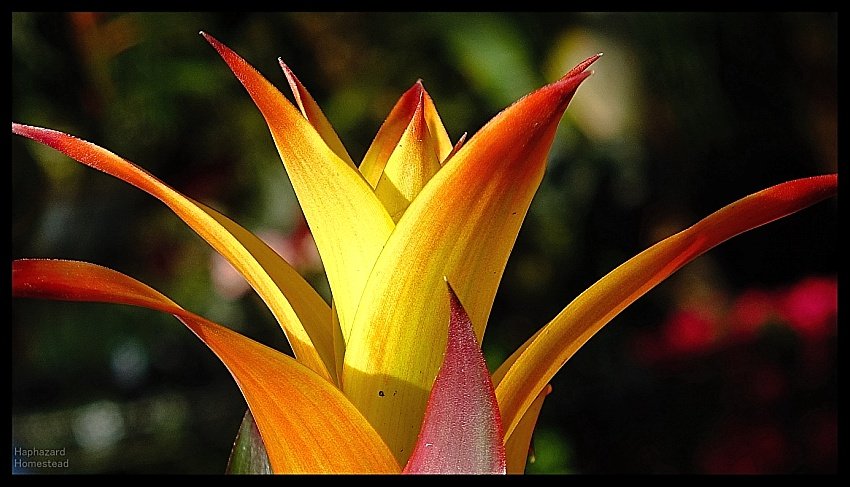
SONY RX10, f4, 1/320 sec, ISO 125, 31mm
OK, I'll admit that this bromeliad is not flowering. But how could I not post it here, when the vegetation alone is as beautiful and colorful as any flower? It's one of the Guzmania bromeiliads, native to the tropics in the Americas, but I'm not sure which one. This plant was big, though, bigger than I could fit in my house! And they like warm temperatures and high humidity. So I can't grow these. Other bromeliads are more flexible in their requirements. Have you ever grown a bromeliad?
Bird of Paradise
This Giant Bird of Paradise (Strelitzia nicolai) is native to the sub-tropics of South Africa. I can't imagine actually growing one of these myself. The whole plant can get 30 feet high with leaves 6-8 feet long! They are used in landscaping in warmer climates, though. Have you ever grown a Bird of Paradise?
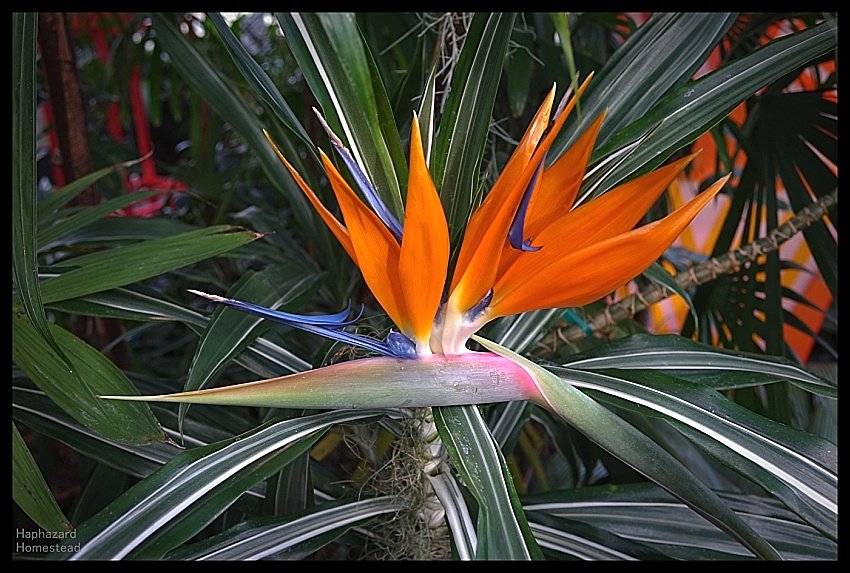
SONY RX10, f2.8, 1/30 sec, ISO 80, 14mm
Orchids
I smile when I look at these perky orchids. They are Cymbidium iridioides, native to the Himalayan region in Asia. These flowers are on one stem from a large patch of strap-like leaves. I think they look like dancers, leaping into the air with exhuberance. This is an action photo!
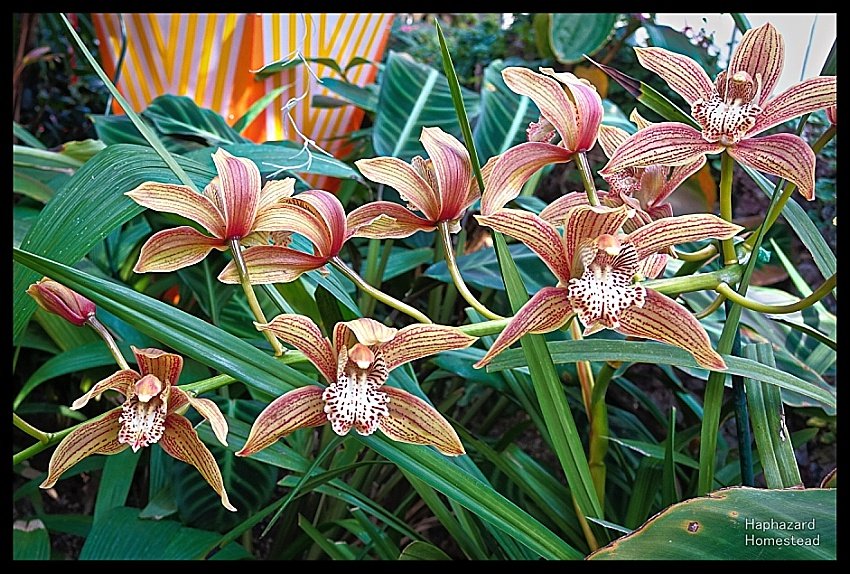
SONY RX10, f2.8, 1/40 sec, ISO 125, 9mm This is a Paphiopedilum exul, native to Thailand. The pollination of this orchid is interesting. Different insects are attracted to honeydew on that little pad, but it's slippery, so they fall into the bucket. The only way to climb out is through the rough track up the back of the bucket, behind the pad, and out through the furry channel at the top. Their travel through the tunnel is what accomplishes the pollination. Then they go off to another flower.
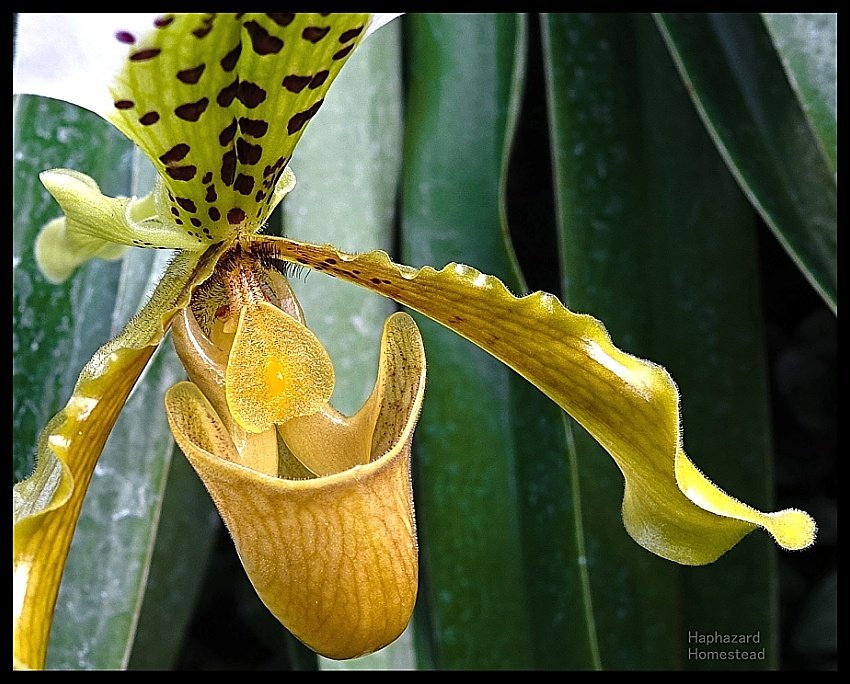
SONY RX10, f2.8, 1/30 sec, ISO 80, 9mm
Anthurium
This pink flower is Anthurium andraeanum, from the warm tropics of Ecuador and Colombia. It likes low light, warm temperatures, and high humidity -- like a tropical rain forest. So I can't grow this flower, either! The pink part isn't actually a flower, but a modified leaf. The flowers will open on the spike that sticks out.
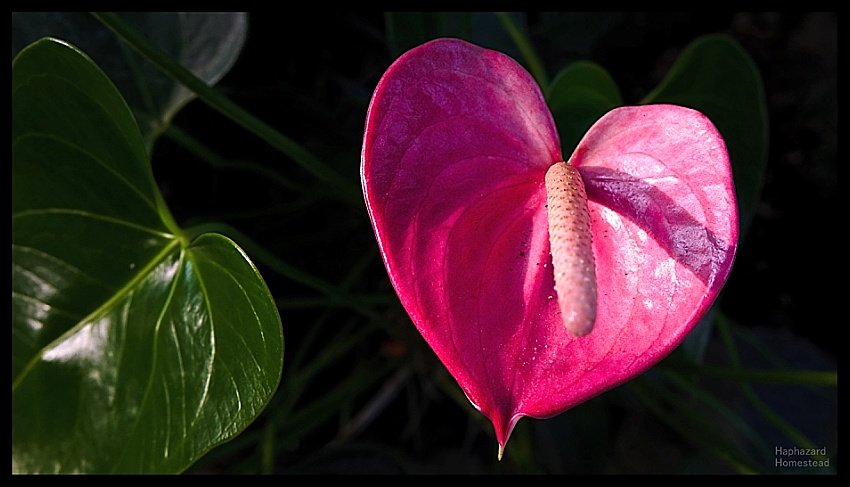
SONY RX10, f2.8, 1/30 sec, ISO 80, 9mm
Calla Lily
So I can't grow any of the plants from the Seymour Conservancy that I've shown you. But I can grow Calla Lilies (Zantedeschia aethiopica), native to South Africa. Calla lilies seem so tropical and exotic, but they grow well here in Oregon's Willamette Valley. They don't take much care and can be divided regularly to share.
I know there are other flower colors, but I think the white ones are especially alluring. What's your favorite calla lily color? have you ever grown Calla Lilies?
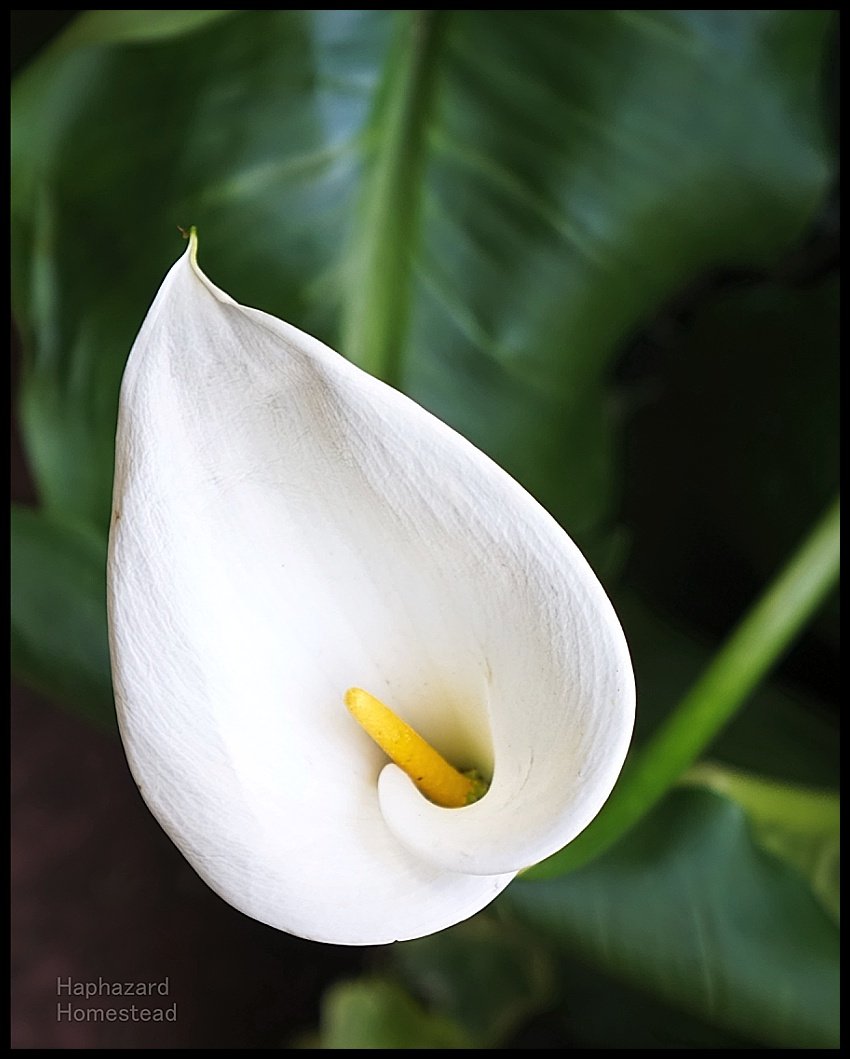
SONY RX10, f2.8, 1/160 sec, ISO 500, 52mm
Sources: The Seymour Conservatory - Tacoma Metroparks
What Do You Think
How do you deal with winter's cold, gray weather? Do you have a public greenhouse or conservatory near you? Do you grow any of these plants? Which is your favorite of these flowers? I really want to know!
** Haphazard Homestead **
*** foraging, gardening, nature, simple living close to the land ***
All content is 100% Haphazard Homestead - photos and all!
I participate in Operation Translation. All my posts are available for translation under the rules listed on the linked post from @papa-pepper. Logo provided by @oepc85. Post goes 100% to Steem Power! Logo provided by @merej99

*** foraging, gardening, nature, simple living close to the land ***

